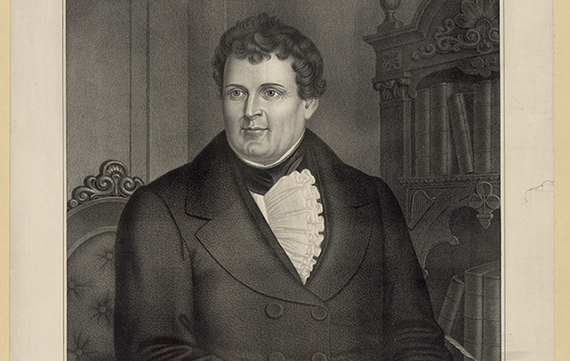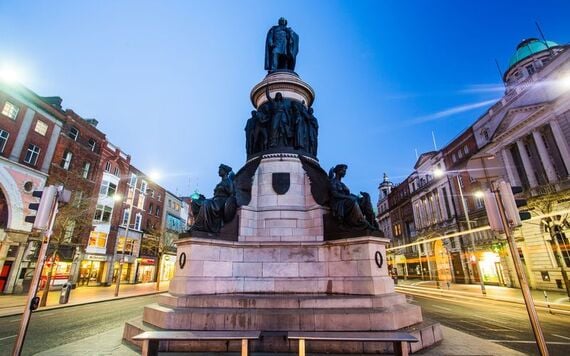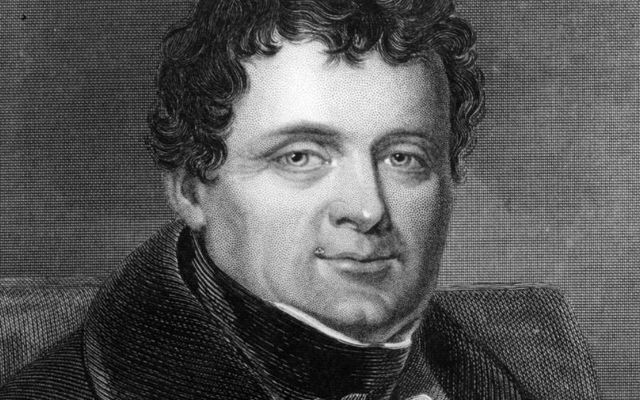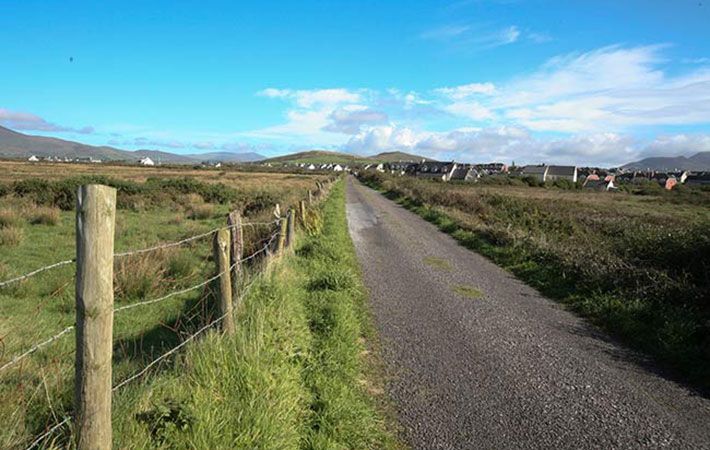On January 13, 1800, Daniel O’Connell delivered his very first public speech, at a meeting of Catholics held in the Royal Exchange, Dublin, to protest against the Union.
Daniel O’Connell, often known as the Emancipator or the Liberator, was a major Irish political leader at the beginning of the 19th century, best known for campaigning for Catholic emancipation and for arguing for the repeal of the Act of Union, 1800.
The Act of Union united Great Britain and Ireland in one 'United Kingdom.' It was implemented by the British government after the unsuccessful United Irishmen rebellion, aided by the French, in 1798, through which the Irish sought complete independence from Britain.
The introduction of the Act was almost the complete opposite of the aims of the 1798 rebellion. Prior to this, the relationship between the countries was officially referred to as a personal union, as the Crown of Ireland Act 1542 named King Henry VIII of England as King of Ireland.
Under this act, power in Ireland was held by the Protestant Ascendancy, landowners, Protestant clergy, and members of the professions (all members of the Church of Ireland or Church of England) who maintained political, economic, and social domination of Ireland.
The British held the Ascendancy somewhat responsible for the 1798 rebellion. They were blamed for the brutish way in which they ruled over the country and the Catholic majority.

Daniel O'Connell (Public Domain / WikiCommons)
The Act of Union meant that Ireland was ruled entirely from London. The level of autonomy granted to the Ascendancy was removed. Ireland was required to contribute two-seventeenths of its expenditure to Britain.
An initial promise under the Act of Union included Catholic Emancipation. At the time, Catholics were not allowed to sit in parliament or own more than a small amount of land, etc. This made the Act initially appealing to Irish Catholics, but King George III quickly blocked the provision, sparking a further movement for emancipation in Ireland led by O’Connell.
Born in Co. Kerry in 1775, O’Connell engineered the widespread mobilization of the Catholic majority in Ireland, and once emancipation was achieved held “monster meetings” attended by hundreds of thousands of people, pushing for the re-creation of an independent Kingdom of Ireland to govern itself with the then ruling monarch.
As a Catholic born into a once-wealthy family that had been dispossessed of its lands, O’Connell studied as a law student thanks to a wealthy uncle, and although he may have had better opportunities in life than many of his fellow Irish Catholics, he nonetheless faced discrimination because of his religion. He was prevented from reaching the uppermost circles of his profession because he was Catholic.

Daniel O'Connell statue in the heart of Dublin.
O’Connell did not support the rebellions of 1798 or Robert Emmet's 1803 attempt to break the bond with Britain. Throughout his life, O'Connell never supported the use of violence, but rather he believed the Irish should instead assert themselves politically.
On January 13, 1800, O’Connell began to assert himself politically on the Act of Union, giving his first public speech urging the repeal of the Act. O'Connell was so appalled by the Act of Union that he claimed he preferred to return to the harshest days of the anti-Catholic Penal Laws than to continue with the Act of Union.
"Let every man who feels with me proclaim, that if the alternative were offered him of Union, or the re-enactment of the Penal Code in all its pristine horrors, that he would prefer without hesitation the latter, as the lesser and more sufferable evil,” he proclaimed to the Catholic meeting, “that he would rather confide in the justice of his brethren the Protestants of Ireland, who have already liberated him, than lay his country at the feet of foreigners."
O’Connell established the Catholic Board in 1811 and the Catholic Association in 1823. The Association's aim was to better the lives of Irish Catholics, who made up 85 percent of the population at the time, through electoral reform, reform of the protestant Church of Ireland's role in the state, tenants' rights, and economic development.
The Association asked members to contribute a penny a month so as to attract even the poorest Catholics and they used the money to fund those in Westminster who supported emancipation.
O’Connell was himself elected to the British Parliament after winning a by-election in 1828 for County Clare, but due to the Oath of Supremacy, which was incompatible with Catholicism, he was unable to take his seat.
Knowing that to deny the hugely popular O’Connell his seat would only result in more trouble in Ireland, the Prime Minister, the Duke of Wellington, and the Home Secretary, Sir Robert Peel, convinced George IV that Catholic Emancipation needed to be established, despite their own personal opposition. The Emancipation Act quickly followed and became law in 1829.
Once his first biggest battle was won, the war against Catholic discrimination continued with the Tithe War and the repeal of the Act of Union. At the height of his popularity and apparently, as one of the best-paid lawyers in Ireland (although it’s believed he lived constantly in debt), O’Connell organized an initially peaceful campaign of non-payment of tithes, the payments made by the majority Catholic population to the established protestant Church of Ireland.
The campaign, unfortunately, turned violent and resulted in the Tithe War between 1831 and 1836, in which the newly established Irish Constabulary seized the property of those who refused to pay.
O'Connell continued to organize monster rallies throughout the country, remaining a thorn in the side of the British authorities.
Things came to a head when Prime Minister Peel banned a rally in Clontarf, Co. Dublin in 1843. Although he called off the meeting because he was not willing to risk the chance of violence, O’Connell was arrested and charged with conspiracy and imprisoned for a year.
He was released three months later, but his health had suffered greatly. Daniel O’Connell died of softening of the brain (cerebral softening) in 1847 in Genoa, Italy at the age of 71.
Described by William Gladstone as “the greatest popular leader the world has ever seen,” O’Connell and his nonviolent philosophies inspired many future leaders, including Mahatma Gandhi and Martin Luther King, although he was at times criticized by Easter Rising leaders James Connolly and Pádraig Pearse.
Dublin’s main street was renamed O’Connell Street from Sackville Street in his honor in the early 20th century, and his statue still stands at the lower end of the street, facing O’Connell Bridge.
* Originally published in January 2016, updated in January 2026.




Comments